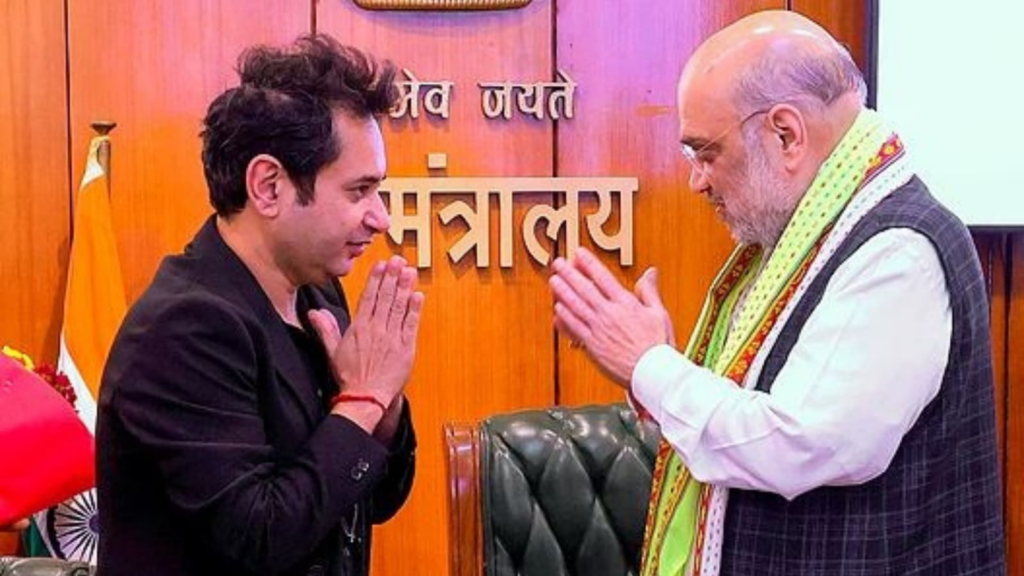All is seemingly not well within Tripura’s ruling coalition of the BJP, the Tipra Motha, and the Indigenous Peoples Front of Tripura (IPFT), with each ally increasingly encroaching on the other’s turf and reports of clashes between workers of the BJP and the Tipra Motha surfacing in recent weeks.
The BJP and the Tipra Motha, partners post-2023 Assembly elections, appear to have hit a rough patch. Last month, BJP supporters were attacked in Asharambari of Khowai district while listening to Prime Minister Narendra Modi’s “Mann ki Baat” radio programme. Days later, a BJP worker was assaulted in Sepahijala district, prompting Chief Minister Manik Saha to publicly blame the Tipra Motha for the “violent and undemocratic attack”. He warned that such acts would not be tolerated and asked police to act strictly against perpetrators.
The Tipra Motha, floated in 2021 by former royal Pradyot Bikram Manikya Deb Barma with the demand for a “Greater Tipraland”, swept the Tripura Tribal Areas Autonomous District Council (TTAADC) polls two months after its inception and two years later, became the second-largest party in the state Assembly.
Despite campaigning against the BJP, it joined the ruling alliance after a tripartite agreement was signed with the Centre and state government over the promise of an “amicable solution” to socio-economic, cultural and land issues of tribals.
However, relations have remained uneasy. In July, citing the slow progress of the 18-month-old accord, Tipra Motha MLA Ranjit Debbarma said the party was “almost ready to withdraw support to the government”. “What is the point of being part of the government? We left the demand of Greater Tipraland but nothing has been done,” he said. Though the statement was withdrawn within hours after Pradyot intervened, he acknowledged “genuine frustration” among tribals.
Both parties also accuse each other of poaching workers. The BJP claims several Tipra Motha workers have joined its ranks since March, while the latter has gained panchayat and mandal-level leaders from the BJP in West Tripura.
Immediate trigger
The immediate flashpoint between the allies is the coming TTAADC village committee elections, delayed for years and now under Supreme Court scrutiny. Last month, a Bench led by Chief Justice of India B R Gavai issued notices to the Election Commission (EC), the state poll body, and the government on the delay, giving them four weeks to explain.
Tipra Motha leaders welcomed the court’s intervention, calling the pending polls a long-standing demand of tribals. State Minister Brishaketu Debbarma said governance at the grassroots in the ADC had suffered without elected village committees, leaving NITI Aayog and development funds underutilised.
Hinting at uncertainty over contesting the polls with the BJP, Ranjit Debbarma said, “At this position, we aren’t in a position to decide whether to contest collectively with the BJP or go alone. The final decision will be taken by our supremo.”
Trying to downplay the tensions, Pradyot Deb Barma said, “We do not see the BJP as our competitor in the hills. Instead, we must compete against the CPI(M).” He said the Centre was keen to ensure tribals get their Constitutional rights under the Tiprasa Accord, but “some BJP state leaders were acting like Congress leader Ashok Bhattacharya, who tried to oppose the ADC despite former PM Indira Gandhi working to grant it in 1982”.
Saha, meanwhile, chaired a meeting of the BJP’s Janjati Morcha last week to review tribal outreach and poll preparedness. Stressing that Modi has prioritised tribal development, the CM said the BJP was “completely prepared” for both village committee and ADC polls. This has irked Tipra Motha, which sees BJP’s push into the TTAADC areas as a direct challenge.
Adding to the BJP’s concerns, its other ally IPFT has revived its demand for a separate “Tipraland” state. At its 17th Tipraland Separate Statehood Demand Day in Agartala recently, the party claimed to be regaining popularity among tribals after years of decline. The IPFT had earlier downplayed the demand after being included in the tripartite accord, but appears to be repositioning itself in tribal politics.
Tripura’s 60-member Assembly has 20 reserved tribal seats, of which the BJP holds four and the Tipra Motha 13. The CPI(M) and the Congress have tribal legislators, but none elected from ST-reserved constituencies. That makes the TTAADC polls — covering a population of 12 lakh, 84% of them tribal — crucial for all three ruling parties. With loyalties shifting on the ground, a fragile coalition and grassroots elections looming, the coming months could determine whether the alliance holds or unravels.

